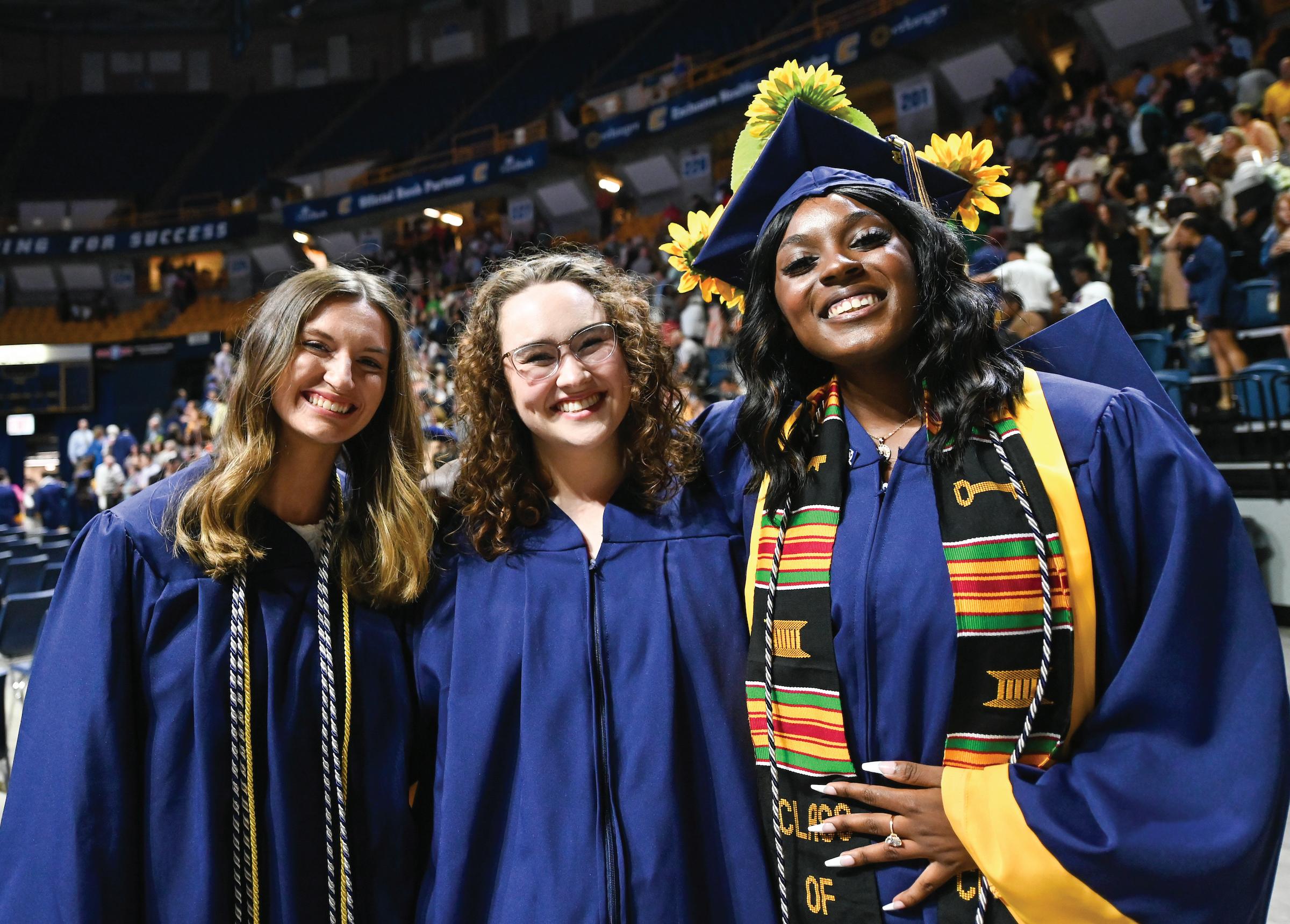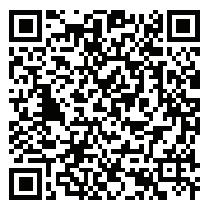












It is my honor to serve as the chancellor of the University of Tennessee at Chattanooga.

UTC is a special place, not because of our beautiful park-like campus or our incredible facilities, but because of the people who are UTC. It is the people who make UTC special. We are driven by our desire to provide the best possible education to our students and positively impact our community.
Our strong sense of community provides social support, improved mental and physical health, greater civic engagement and connection to a broader social network. One of the unique aspects of UTC is our commitment to civic engagement. As a metropolitan university, civic engagement is a defining part of our identity. We encourage students to become active citizens and leaders by offering opportunities to participate in service learning, community outreach, internships and volunteer work.
As you flip through this issue of University of Tennessee at Chattanooga Magazine, you will see stories of UTC and its devotion to community. We offer students small class sizes and personalized attention, and we take pride in providing a welcoming and supportive environment where students can grow academically, professionally and personally.
We are at the forefront of collaborations with our city and regional partners. Our campus will be home to a node of Chattanooga’s quantum network established by EPB, presenting exceptional opportunities for our students to learn about rapidly evolving quantum technology.
The new UTC Research Institute, headed by Dr. Mina Sartipi, will help UTC move forward and realize our research goals. The heart of the institute is impactful and broad crossdisciplinary research that will help fast-track Chattanooga’s place as a hub for mobility electrifications, connectivity and automation. Dr. Sartipi and the Center for Urban Informatics and Progress’ history of innovative, cuttingedge research and collaborative teamwork
illustrates how UTC is preparing our community for the future.
UTC recently added two degree programs to directly address regional and state workforce needs. A new cybersecurity bachelor’s degree program, which launched in January, will prepare students to assess the security needs of computer and network systems, recommend safeguard solutions, and manage the implementation, auditing and maintenance of security devices, systems and procedures.
A 12-month accelerated bachelor’s degree in nursing program, which begins in the fall, is intended for those who already have bachelor’s degrees in any field and are seeking to transition to nursing careers. Students accepted into the program will face a rigorous three-semester, 59-credit-hour curriculum enabling them to graduate within one calendar year.
UTC continues to reaffirm partnerships with our local educational partners. Through new dual-admission agreements, we have ensured smooth transfer to UTC for Chattanooga State and Cleveland State community college students upon completing their associate degrees. We have partnered with Hamilton County Schools to create University High, a new initiative headquartered on campus. Debuting in the fall, an initial cohort of 50 high school juniors will enroll in college-level courses taught by UTC faculty and directly supported by high school courses taught by HCS teachers.
We will soon launch “A Moc’s First Year,” a program created to increase retention and graduation of first-time, full-time freshmen.
“A Moc’s First Year” will connect a variety of current and new initiatives, culminating in a centralized learning community model. The approach is intended to increase the sense of community on campus, new UTC students’ connection to Chattanooga, and overall UTC student success.
Thank you for your continued support of UTC. Together, we are a community of Mocs; we are UTC.
STEVEN R. ANGLE CHANCELLORutc.edu/am1y
We welcome your feedback! Email magazine@utc.edu
Learn more about the A Moc’s First Year program designed to help students succeed in the classroom and beyond.A college pipeline for high school students who might not have considered a four-year university education is the goal of a new partnership between Hamilton County Schools and the University of Tennessee at Chattanooga.

Debuting in fall 2023, University High is a Hamilton County Schools initiative headquartered on the UTC campus serving students and their families at no cost to them. An initial cohort of 50 high school juniors will enroll in college-level courses taught by UTC faculty and directly supported by high school courses taught by Hamilton County School teachers.
After two years in the program, University High students will earn 14 to 20 college credit hours. Courses will prepare students for future UTC classes while meeting high school graduation requirements.
The next class of high school juniors will arrive at UTC in fall 2024, with the campus supporting 100 students at that time.
Dr. Shewanee Howard-Baptiste, UTC vice provost for academic outreach, will help coordinate the program.
“We believe that University High has the capacity to recruit more diverse students and their families to this campus so that they feel that UTC is their first choice for higher education,” she says.
University High students will have full access to all UTC student support services and engagement opportunities, including University Health Services, the UTC Library, the Center for Career and Leadership Development, the Aquatic and Recreation Center and on-campus events.
Through shared collaborations between UTC and Hamilton County Schools, the program’s cost is supported financially through grants and pooled resources between both institutions.
Admission to University High is open to all Hamilton County Schools students. Applicants will be evaluated case-by-case to help recruit and support students seeking more in-depth learning. To be considered, students must have a minimum 3.0 GPA (on a 4.0 scale) and provide two letters of recommendation. •
During the 2022-2023 academic year, the University of Tennessee at Chattanooga Division of Enrollment Management and Student Affairs introduced the Power C Tour, a statewide outreach effort to prospective students on academic programs, housing options, financial aid and campus life at UTC.
To give prospective students and their families a feel for UTC, representatives from the academic colleges, student services and the UTC Executive Leadership Team—plus current students and mascot Scrappy—were on hand to answer questions and make connections in a fun, relaxed environment.
As part of each event, students had opportunities to win $1,000 Power C scholarships, $500 housing stipends, orientation registration discounts and UTC-themed prizes and gear.

The fall tour included stops in Nashville, Memphis and Knoxville before returning to
campus for a Nov. 16 standing-room-only event in the University Center Tennessee Room. The final tour stop brought 206 total guests to campus, including 103 prospective students— with 32 qualified high school seniors who met admissions criteria being admitted on the spot.
“I absolutely love talking to prospective students about our campus, the academic resources we provide and our entrepreneurial culture—not to mention all of the outdoor recreational activities Chattanooga offers,” says Dr. Yancy Freeman, vice chancellor for enrollment management and student affairs.
During the four fall Power C Tour stops, UTC personnel visited with more than 500 prospective students and parents, awarded more than $15,000 in scholarships and stipends and admitted more than 100 students in person.
The tour resumed in the spring with oncampus treks to Chattanooga State Community College and Cleveland State Community College, educating students on the pathway created for a seamless transition to complete a bachelor’s degree at UTC. The Chattanooga State visit included a “ChattState UTC Connect” dual admission signing ceremony. •
Students received on-thespot UTC acceptance offers at the Power C Tour eventsOn May 1, the University of Tennessee at Chattanooga announced the creation of the UTC Research Institute as a strategic initiative aimed at increased research funding, interdisciplinary collaboration across campus, and support for community and local industry priorities.

The UTC Research Institute will be led by Dr. Mina Sartipi as its executive director. Sartipi is founding director of the UTC Center for Urban Informatics and Progress (CUIP); Guerry Professor of computer science and engineering; and holds a joint appointment at Oak Ridge National Laboratory.
“This new institute will help UTC move forward and realize our research goals,” says Chancellor Steven R. Angle. “The heart of the UTC Research Institute is impactful and broad cross-disciplinary research that will help fasttrack Chattanooga’s place as a hub for mobility electrifications, connectivity and automation.
“Dr. Mina Sartipi will shine in her new role. Dr. Sartipi and the CUIP team’s history of
innovative, cutting-edge research and cooperative teamwork illustrates how UTC is preparing our community for the future.”
The UTC Research Institute will narrow and intensify the University’s focus on strategic areas of research funding. Two initial focus areas are transportation (intelligent transportation systems, electric vehicle and battery technologies, human factor, automation, multimodal systems, policy and planning, cyber security, privacy and infrastructure) and quantum technologies (computing, sensing and networks).
The Institute’s approach to pursuing community- and funding-driven research areas is intended to expand resources and opportunities across campus and disciplines, engaging scholars whose expertise can bring needed interdisciplinary depth to fully exploring solutions to complex problems.
“Having teams from across campus involved in problem-solving positions UTC to be more competitive when pursuing research funding and will create a more substantial and broader impact from our research,” Sartipi says. •
A new dual admission agreement between the University of Tennessee at Chattanooga and Chattanooga State Community College reiterates a commitment to ensure a smooth transfer of Chatt State students to UTC to complete their bachelor’s degree programs.
As part of the Chatt State UTC Connect pathway, students—upon admission to Chattanooga State—also are simultaneously admitted to UTC. They will have access to more personalized advising from UTC throughout their time at Chatt State to ensure their transition to UTC is quick and easy.

Dual-admission students also will have access to the many amenities and benefits available to UTC students, including the Aquatics and Recreation Center at UTC, athletic events, the UTC Library and Student Health Services—all for one nominal fee each semester.
The event heralding the partnership included awarding a $1,000 Power C scholarship to Chatt State student Devyn Johnson, who plans to continue her education at UTC this fall. When she arrives at UTC, she will major in business administration.
Johnson, a 2021 Chattanooga School for the Arts & Sciences graduate, says a seamless transition from Chatt State to UTC “allows us to have all your ducks in a row. It makes it so less stressful and happier for the students.
“I was thankful that I’m having an impact here at Chattanooga State, and now I can go and make a bigger impact on UTC’s campus.”
Megan Barrott, a UTC junior majoring in exercise science with a minor in nutrition, received an associate degree from Chatt State in May 2022.
“As I got closer to finishing my associate’s degree, I just knew I wasn’t done,” Barrott says. “I was already putting in the hard work and the time, so I just decided, ‘Let’s not take a break; the time’s passing anyway.’ Continuing to UTC was seamless.” •
University of Tennessee at Chattanooga South Campus housing residents now have student-centric space within easy walking distance of their residence halls.
The Aviary at Stacy Town Center was introduced in January, a community space designed to serve the social and academic needs of students residing in Decosimo, Guerry, Stophel, Walker and UC Foundation Apartments. While there are student meeting spots at the University Center, UTC Library and recently-renovated Lupton Hall, there weren’t any spaces of note on the south side of McCallie Avenue.
Located at the corner of East Eighth and University streets in front of the Decosimo Apartments, The Aviary was conceptualized and designed by students in the UTC Interior Architecture and Design program. The process began in the summer of 2021 when Associate Vice Chancellor for Enrollment Management and Student Affairs Abeer Mustafa met with Interior Architecture and Design faculty members—including

Associate Professor Jessica Etheredge—to discuss creating student spaces across campus. They quickly focused on a Stacy Town Center student lounge area.
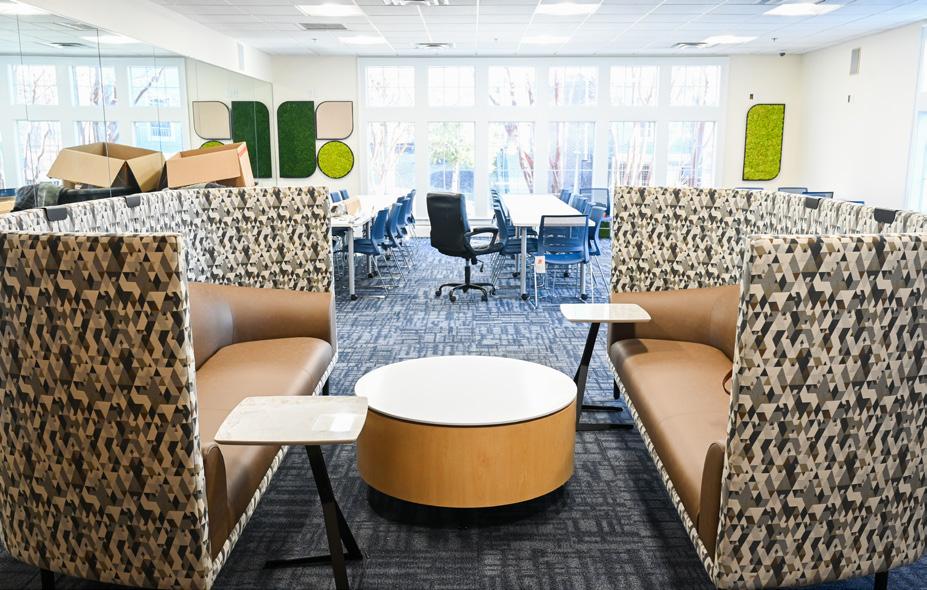

During the fall 2021 semester, third-year students enrolled in Etheredge’s Commercial Interiors I course were divided into groups of two for a four-week project. They gathered information through research, brainstorming, site visits, field measurements of the space, interviewing Housing and Residence Life staff and surveying students living in the apartments.
The student tandems developed design concepts and proposals for the approximate 3,300-square-foot Stacy Town Center using the information and feedback. Presentations were then made to a group that included Mustafa, Chancellor Steven R. Angle and members of the UC Foundation—which funded the $500,000 renovation based on the winning student concept.
“After the final presentations and the students left the room, the discussion immediately turned to, ‘We’re going to get this approved. This is going to happen. This is going to take place,’” recalls Etheredge. “Dr. Mustafa was all about, ‘Let’s recognize and celebrate the students. Let’s present this. Let’s hire some of the students as project managers so they can see the process first-hand.’”
The Aviary concept was the idea of students J.T. Taylor and Jacob Ridenour, who both graduated in May.


“Wow, what an experience to be part of,” Ridenour says. “This has been a once-in-a-lifetime opportunity to be a part of, and to have made a mark quite literally at UTC is just a real humbling experience.”
“Not only is it humbling, but it also is elevating,” adds Taylor. “It’s definitely something that’s going to stand out in a portfolio. It’s very exciting.” •

 BY SAM LENNON
BY SAM LENNON
While other areas of academic study may struggle in the wake of the pandemic, recruitment numbers are up in the Department of Art at the University of Tennessee at Chattanooga. Department Head Angie To credits some of that change in perception to the state of affairs in the modern world.
“At this moment, there is a lot of global upheaval and uncertainty,” she says, “so when people think about college, they are realizing that this is a moment you should prioritize your deep passions.”
Students pursuing those passions benefit from training skills that will prepare them for various careers. With an undergraduate degree in art, many paths are open to students after graduation.
“Some students continue on to be studio artists, but we have a lot of students who bring that critical thinking and creative problem solving to all different sectors of society,” she says.
To joined the department in July 2021, coming from Alfred University in New York. She says she was drawn to UTC because of the tight-knit nature of the department.
“I’m here mainly to connect the art department with the city of Chattanooga, at large,” she says, “but also across campus.”
In her year and a half in Chattanooga, To already feels connected and supported by Chattanooga’s art scene. She recently won a 2023 Racial Equity Grant from local non-profit ArtsBuild, saying she will use the funds to produce a suite of six largescale paintings that address the lack of Asian representation in the Western canon.

She sees the grant as a badge of support. “It’s incredible to feel so supported by both fellow artists and the community.”
To is working to ensure that students engage with the local art community.
“I’m in the process of setting up internships across town with different entities,” she explains. The goal is to immerse students in work positions to exercise what they learn at UTC before they graduate.
To has been showcasing her department across campus. Since she arrived at UTC, Art Department pieces have been produced and displayed in the provost’s office, Advancement House and the Division of Diversity and Engagement—which created a fellowship and gallery series last winter.
The perception of an art degree is changing.
To says the Department of Art is built around student success. Its acceptance requirements differ from other art programs, as no portfolio is required to apply.



“We get students from all over the region,” she says, “and there isn’t always strong K-12 art education. We accept every student who has an interest in art.”
To help level the playing field, students are taught the basics during the first two years of pursuing an art degree at UTC.
After those initial two years, the program becomes more individualized. Upper-level students can be found honing their craft in various spaces around campus, including the Fine Arts Center—which contains a woodshop; studio areas behind Patten House; and the 801 McCallie Building, with workspaces utilized by students and faculty.
For To, student success comes at the intersection of on-campus learning and community engagement.
“It’s my goal to help students have an experience out in the community where they can see how their skills and the unique things they do translate into job skills.” •
OCT. 3-7 “Blithe Spirit by Noël Coward”
This classic comedy offers wit, conflict and big laughs as a fussy, cantankerous novelist finds himself haunted by the ghost of his late first wife.
NOV. 14-18 “Alabaster by Audrey Cefaly”
A darkly comic Southern drama about love, art and the power of women.
FEB. 27-MAR. 2 “9 to 5”
(Music and lyrics by Dolly Parton, book by Patricia Resnick) Based on the 1980 hit movie, this hilarious story of friendship and revenge in the Rolodex era is outrageous, thought-provoking and even a little romantic.
APR. 9-13 “Out at Sea by Slawomir Mrozek”
An absurdist tale of survival and democratic decision-making.
For upcoming events, to purchase tickets and to view past production photo galleries, visit utc.edu/theatre-company
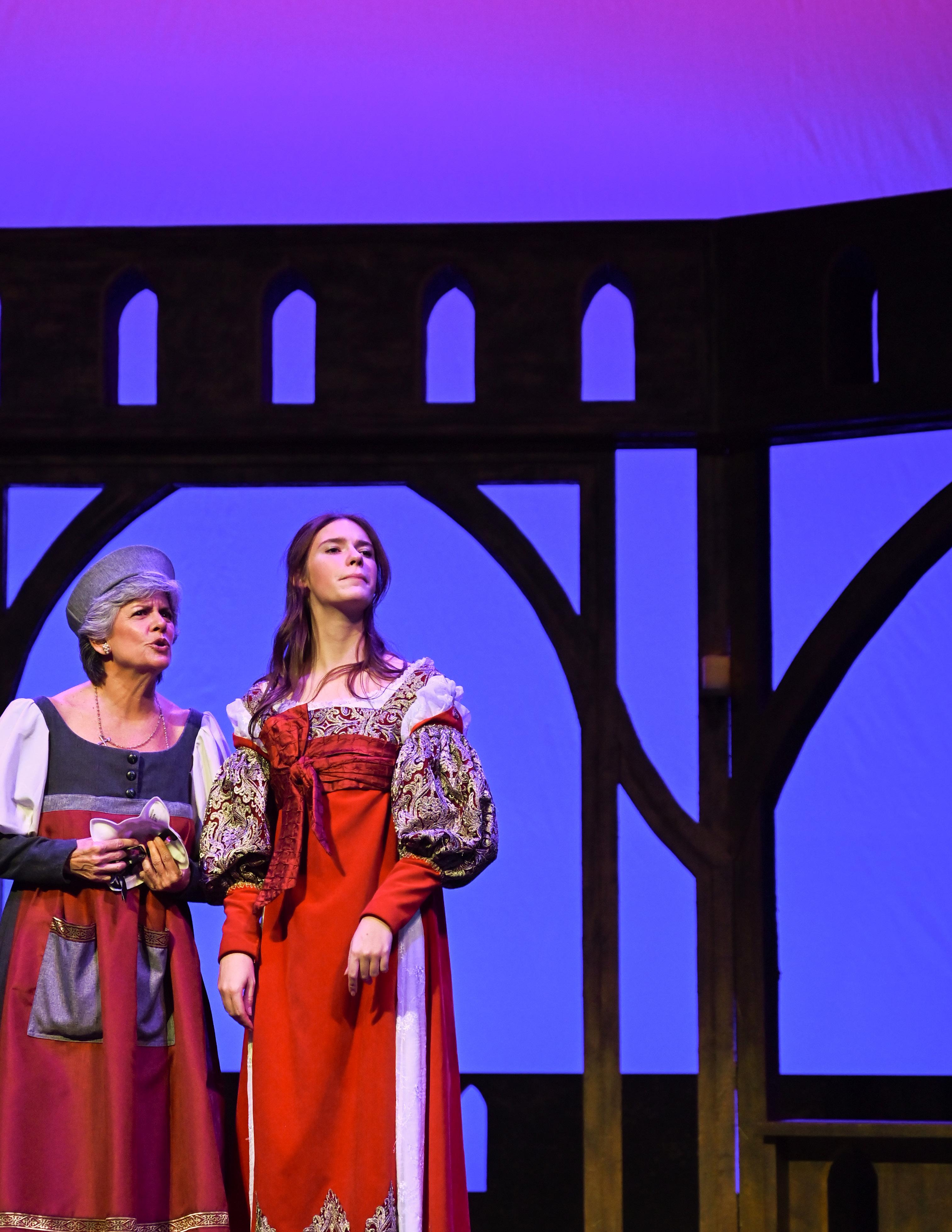
The UTC Theatre Company is the production module of UTC’s Department of Performing Arts, Theatre Division and is accredited by the National Association of Schools of Theatre. UTCTC combines performance and production activities to develop collaborative artists while serving the community.
By providing a strong foundation in the traditions and disciplines of theatre, the academic program encourages our student-artists to take risks, make compelling choices and think independently. UTC theatre graduates bring an informed awareness of the world to their art while preparing them for a variety of career paths.
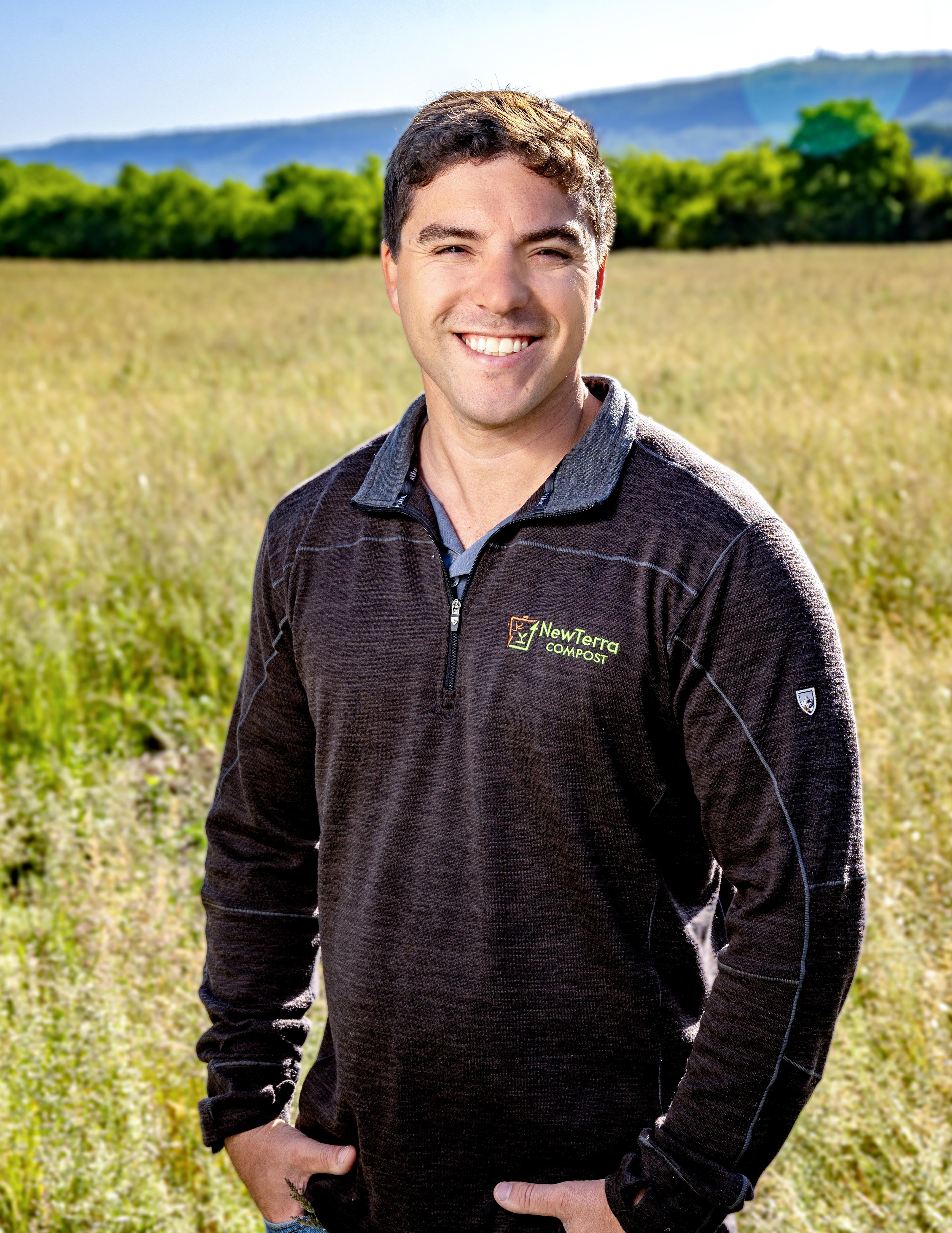
The company takes food waste and— instead of dumping it into a landfill to mingle with clothes, furniture, appliances and other household garbage—turns it into compost for residential and business customers.
A U.S. Army veteran who cleared out improvised explosive devices, commonly referred to as IEDs, in Afghanistan, Lavoie was pursuing a master’s degree in business administration at the University of Tennessee at Chattanooga when he started NewTerra.
After hearing about the Veterans Entrepreneurship Program (VEP) in the Gary W. Rollins College of Business, it seemed a natural fit—and he enrolled.
“It’s been a long time since I’ve been surrounded by fellow veterans like this, so it was really refreshing,” says Lavoie, who received his MBA in 2022. “I mean, just the energy in the room, the camaraderie that we had and the excitement. Everybody was at some different point in their journey and they were all just fired up to get it going.”
Established in 2012, the VEP—free to those selected to attend—targets disabled and service-distinguished veterans. In 10 years, 143 veterans have graduated from the program.
The curriculum includes a five-week online course to develop business concepts, followed by an eight-day, on-campus “boot camp” that covers everything from cash-flow management and marketing tools to legal and human resources issues.
BY SHAWN RYAN“You’re not going to sleep a lot,” Lavoie says, “but you are going to get a whole lot of value out of one intense week and a lot of exposure to amazing people.”
Charles Wright graduated from the first VEP class in 2012 and now owns two franchises of The Original Hot Dog Factory in Alabama—one in Birmingham and another in Anniston.
When he was enrolled in the boot camp and talking to business owners from around Chattanooga, it convinced him that he could start his own business.
“They took us to mom-and-pop businesses and they showed us how they operate,” recalls Wright, a U.S. Navy veteran. “They conveyed information about how they started, what was their history, their background, and it showed that, ‘Hey, you can become an entrepreneur.’
“It’s hard. It’s not for everybody. I bust my head every day on it, but the groundwork was laid here because of the entrepreneurs bringing advice like, ‘Hey, don’t be afraid to take that step.’”
Lavoie says that for any veteran who has a business idea but is struggling with it, the VEP can help take the idea from concept to reality.
“If you’ve got that concept that’s bouncing around in your head, and you’ve been trying to put something on paper, trying to really figure out how you can make it work, this is the place for you to get it all down, come put it together and then work with people who’ve been there before.” •
@newterra compost
NewTerra Compost has kiosk locations in Chattanooga and Cleveland, Tennessee.
For more information about utilizing NewTerra Compost’s services for your home or business, visit newterracompost.com and follow them on Facebook and Instagram.

Normand Lavoie had been running his business, NewTerra Compost, for 18 months, but he knew he needed to learn more.
network systems, recommend safeguard solutions, and manage the implementation, auditing and maintenance of security devices, systems and procedures.
“And that’s on the increase,” says Dr. Chang Phuong, a lecturer in the College of Engineering and Computer Science at the University of Tennessee at Chattanooga.
Addressing that need is one of the cornerstones of the Bachelor of Applied Science in Information Technology in Cybersecurity degree program at UTC, which launched in 2023. Phuong is one of the instructors.
The program’s first class met on Jan. 9, and degrees are to be awarded in December.
Each semester—spring and fall—has two seven-week terms in which students take at least three courses and participate in an internship with a local company such as EPB or Miller Industries.
Cybersecurity is not just the study of computer science, Phuong explains.

“We have involvements with psychology, business, logistics, finance and economics,” he says. “The mindset of a cybercriminal is profit, so we try to understand that mindset, to figure out where the gaps are, and to be able to close those gaps.”
According to MSN Money, global cybercrime will cost businesses and institutions $10.5 trillion annually by 2025.
The new program will prepare students to assess the security needs of computer and
Tennessee and the Chattanooga area are not immune to the reported talent shortage. Approximately 6,700 cybersecurity jobs are open in Tennessee—with more than 300 in Southeast Tennessee and North Georgia. Demand in Chattanooga is expected to grow 22-24% in the next five years.
“We are eager to collaborate with our community partners and community colleges throughout Tennessee and the Southeast region to address a major workforce need,” says Dr. Jerold L. Hale, UTC provost and senior vice chancellor for academic affairs. “The program’s objective is to prepare students as leaders in IT and cybersecurity who can function effectively in multidisciplinary environments in the local and regional workforce.”
The program is aimed at transfer students from community colleges with earned associate of science (AS) or associate of applied science (AAS) degrees; transfers from four-year universities with general education curriculum completed; and working professionals with general education finished but no degree earned.
Students will work closely with area industry partners to gain workforce experience in this accelerated program, taught in a 12-month format. The program will include instruction and hands-on experiences in computer architecture, programming and systems analysis; networking; telecommunications;
A 2019 study revealed a global shortage of about 3 million cybersecurity professionals.
cryptography; security system auditing and design; applicable law and regulations; risk assessment and policy analysis; contingency planning; user access issues; investigation techniques; and troubleshooting.
Mischka Scott, one of the students in the BASIT CyS program’s initial cohort, has a bachelor’s degree in social work from Southern Adventist University and wants to apply the skills she learns in the UTC program to various areas of social work.
“When I finish this course,” she says, “I’m hoping that I’ll be able to have the knowledge to help a lot of social work companies and programs be able to better protect information that they have.”
In pursuing the addition of the new degree program, the University received letters of support from more than 25 community partners.
“UTC’s new BAS-IT Cybersecurity degree program promises to fill a major need in connecting the classroom curriculum to the workforce,” says Steve Morrison, director of information security at EPB of Chattanooga.
Nationally on average, a cybersecurity professional with five to eight years of experience earns about $99,000 a year. •

“With the increasing demand for trained security professionals, I am excited to see the caliber of students that graduate from this program.”
A celebration of 50 years of the UTC nursing program

As the program celebrates its golden anniversary in 2023, the evolution continues.

“It is hard to believe that we have been educating nursing students for 50 years,” says Dr. Chris Smith, director of the UTC School of Nursing and the University’s chief health affairs officer. “While the curriculum and the faculty have certainly changed, the school’s commitment to our students has never wavered.”
The UTC program was established in 1973, and perhaps no one in the region has had a more incredible front-row view of the development of the program—and the nursing profession’s growth—than its initial faculty member, Martha Butterfield.
Butterfield, a retired Mary B. Jackson associate professor who taught at UTC from 1974 to 1998, recalls when the nursing position “was to do what you’re told; you know, kowtow to the physicians.” It was expected that nurses would stand up when a doctor entered the nursing station, “and the physician was ‘be all’ and ‘do all’ and nurses were there to push bedpans.”
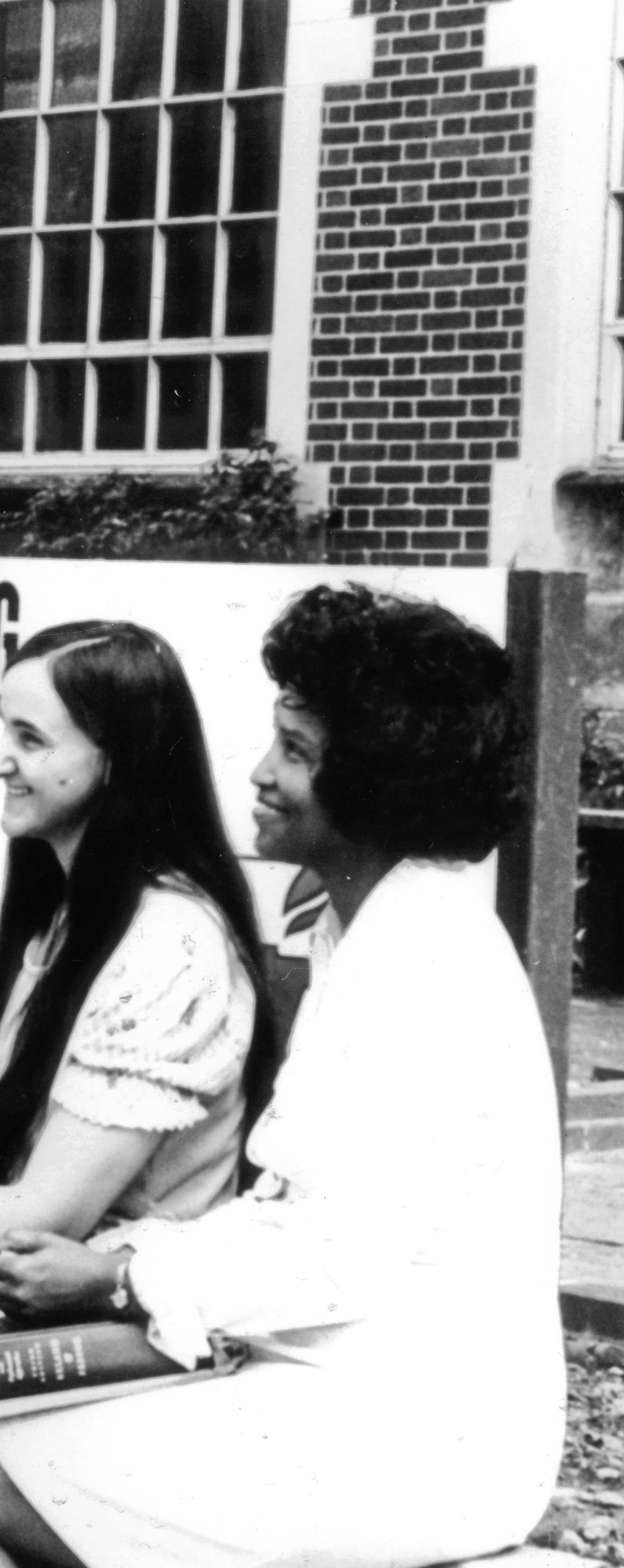
Since its humble beginnings operating out of two rooms inside Race Hall, the University of Tennessee at Chattanooga School of Nursing program has continually evolved.
There were just two baccalaureate degrees offered in Tennessee when she and her late husband Bill—a longtime UTC professor of education—arrived in Chattanooga in 1967. Funeral homes actually deployed their vehicles to accident scenes at the time because the city didn’t have ambulance service.

Butterfield, who received bachelor’s and master’s degrees in nursing from Ohio State University, struggled to find work. “They didn’t know what to do with somebody with a master’s degree,” she says.
After landing at Baroness Erlanger Hospital School of Nursing, she and two other local nurses began a crusade to bring a nursing program to UTC to serve the state’s Southeast region.

They found that there was interest in a program, but prospective students “weren’t interested in driving more than 30 miles to get that degree,” Butterfield recalls, “so the three of us got together and started to work on getting a bachelor’s program.”
They collaborated with professional nursing organizations, University officials, legislators and colleagues in Knoxville. “We kept pushing,” she says, “and we had some local senators and representatives who supported us. It took us several years.
“Knoxville finally said, ‘If you support us, we’ll support you,’ and that’s how we came into being.”
Butterfield chuckles as she recalls the early days of the Department of Nursing, as it was first called.
“We were the stepchildren of the University,” she says. “We started out with a couple of rooms in Race Hall, then we moved to Brock Hall—and we were kicked out because the people in power didn’t want nursing in that building. Then we went to one of the houses up on the hill next to the dorms.”

The program later moved to Guerry Center before settling into its current Metro Building home.
Butterfield proudly recalls being a part of the UTC faculty through the start of the master’s program, the birth of the nurse anesthesia program and the initial doctoral program discussions. Beyond new programs, she witnessed the increasing stature of nurses within the medical profession.


“I’ve seen a great change in the whole health care scene,” she says. “Nurses have ideas and good thoughts, are bright and can ask good questions. We can have input into the care that patients receive. That was not around before.”
As for the evolution of the UTC program, “We are at an absolutely spectacular point and we have come so far,” Butterfield says. “Words can’t express how proud I am of the work that Chris (Smith) and the faculty have done.”
In its golden anniversary year, the nursing school finds itself at an exciting time. Over the past two years, the nurse anesthesia concentration enrolled its first cohort; the last master’s classes were enrolled before a concentration transition to a new doctor of nursing practice; and an accelerated Bachelor of Science in Nursing degree program has been launched—with its first class starting in fall 2023.
The accelerated BSN program stems from a critical nursing shortage impacting health care nationwide. It is intended for those with bachelor’s degrees in any field seeking to transition to nursing careers.
The program, Smith says, is designed for individuals with the right skills to be successful.
“They have to be highly motivated; have an intense desire to learn and become competent as a BSN-prepared nurse; understand and appreciate time management; and be able to handle rigor and stress,” she says.
“The good news is you don’t have to have a degree in the medical field to enter this program. For example, if a person with a degree in business wanted to return to college and be a nurse, that would be great. The same for someone with a degree in a field like psychology; they just have to have a proven track record in having earned a bachelor’s degree and meeting the prerequisites.”
Students pursuing an ABSN degree will face a rigorous three-semester, 59-credit-hour curriculum enabling them to graduate within one calendar year. The program will accept and enroll a new cohort of students each semester—fall, spring and summer—creating a continual admission and graduation cycle.
Says Dr. Deborah Deal, chief nurse executive at Parkridge Health System and a two-time UTC alum, “As it’s a well-known fact that all of health care faces a critical shortage of nurses and nurse leaders, we’re excited UTC is helping meet this important demand by offering accelerated opportunities for nursing students to meet their educational goals.”
The School of Nursing will find a new home on campus with the development of the School of Nursing Health Sciences Building.
The 92,000 square foot state-of-the-art facility will include cuttingedge simulation labs and classroom space and will allow the School of Nursing to grow enrollment by 60%.
Support the School of Nursing and celebrate its 50th anniversary by showing your support for their new home on campus by making a gift at give.utc.edu/ nursingbuilding
After the 12-month program, ABSN graduates can take the National Council Licensure Examination. Upon licensure, the graduate will be qualified to work as a registered nurse.
“While we alone will not solve the shortage of nurses,” Smith says, “we can offer this program that will educate more students in a shorter period of time but retain the rigor.” •
“The good news is you don’t have to have a degree in the medical field to enter this program. For example, if a person with a degree in business wanted to return to college and be a nurse, that would be great.”
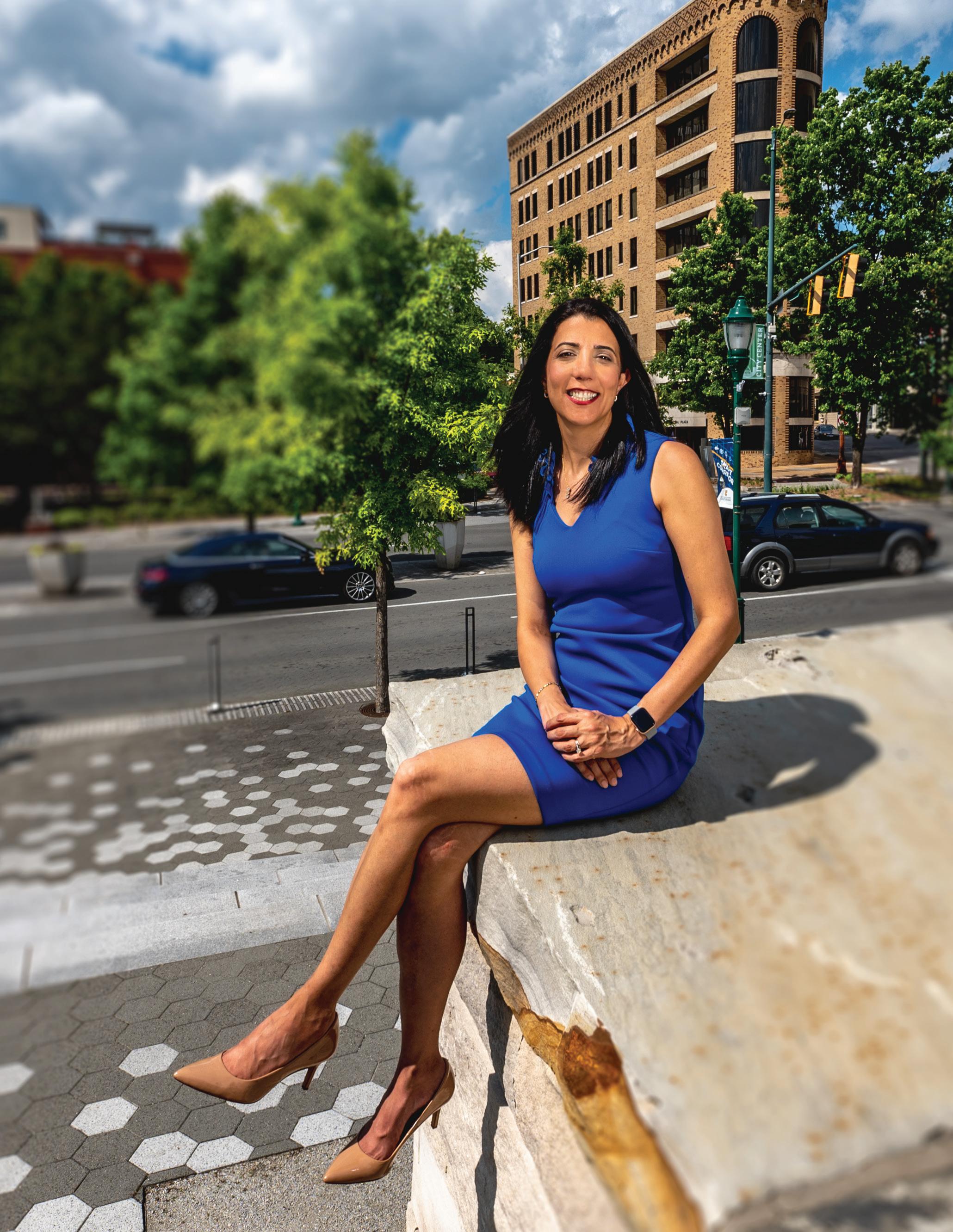
 BY GINA STAFFORD
BY GINA STAFFORD
Wherever the cutting-edge takes her, from globally-recognized innovation to the nation’s largest electric vehicle test bed, Mina Sartipi brings her students along for the ride.
Mina Sartipi, founding director of the Center for Urban Informatics and Progress (CUIP), is pictured alongside a portion of the CUIP MLK Smart Corridor, a test bed for research in smart city developments and connected vehicles in a real-world environment“Teaching has always been my passion,” she says. “As a university faculty member, I train our students and the next-generation workforce. Our students are the workforce behind every project, result—everything.”
Today, Sartipi is a scholar and faculty member at the University of Tennessee at Chattanooga. She is a Guerry professor of computer science and electrical engineering; a nationally recognized scientist with a joint appointment at Oak Ridge National Laboratory; and a leader, as founding director of the Center for Urban Informatics and Progress (CUIP) at UTC.
On May 1, Sartipi was named executive director of the UTC Research Institute, a strategic initiative to help realize research goals articulated in the 2021-2025 UTC strategic plan. The Institute’s two initial focus areas are transportation and quantum technologies, both of which align with strong community engagement and recognized or emerging research and development capabilities and facilities.
students from multiple disciplines are involved in the research that we’ll be working on.”
She aims to increase the number of UTC doctoral students from 49 to 75. They will be part of interdisciplinary teams because the complexity of today’s large-scale problems demands multidisciplinary solutions. Says Sartipi, “As we grow the transportation area— in addition to research in that area—we’re also going to be working on policy and planning, or human factors, for example.”
Sartipi has brought students along to help develop and learn from groundbreaking, headline-making projects ever since she joined UTC as an assistant professor in 2006, when the length of her stay in Chattanooga was very much in doubt. She had just completed master’s and doctoral degrees in electrical and computer engineering at Georgia Tech, where she met another Ph.D. student working on his doctoral dissertation, George Yu. Five years later, they married, but for those first three years that Sartipi lived in Chattanooga, she never leased an apartment
“First, we want to grow research at UTC in specific areas that are aligned with the community and with our local industry, the state, the UT system and federal agencies,” she says. “Second is increasing the number of our graduate students and making sure
for longer than six months and spent many weekends in Atlanta.
“Around that time, the College of Engineering and Computer Science at UTC had started moving toward doing more research, but I wasn’t sure how far it might
“As my research became more applied and involved the community, I had the opportunity to work with the city, which I found to be very collaborative... I think that’s because of the relationship that UTC has with the community, local government, our municipalities, EPB, Enterprise Center, CO.LAB—the list goes on. It’s big, and I think we are thriving in that collaborative environment.”
When Dr. Mina Sartipi was in the second grade, she began tutoring other children in her neighborhood and discovered a lifelong passion: The classroom.

utc.edu/utcrinews
actually be going,” Sartipi says. “The College didn’t have a Ph.D. program, and that was another factor as I thought about the future.
“Then, things started changing; the city started changing. George moved here and we went to the first CO.LAB entrepreneurial event.
“George was doing work for NASA Ames remotely at the time, and he decided to start a company,” Sartipi says. “We saw growth in the city and increasing opportunities at the University.”
Yu’s company, Variable, Inc., develops color sensory technology, for which it now holds five patents. Variable’s color-matching devices are now available in more than 4,500 SherwinWilliams stores across North America.

Alongside the city’s progress and its embrace of technology, Sartipi says, UTC has given her unmatched opportunity to grow as a scientist and a scholar.

“I started here in 2006 as an assistant professor of electrical engineering. After one year, I switched to computer science because the research I was doing was happening in the computer science department versus electrical engineering. I was given the opportunity to make that change—which, by itself, shows that UTC was accommodating from the beginning.
“As my research became more applied and involved the community, I had the opportunity to work with the city, which I found to be very collaborative. I have been working with many entities within the city now for more than eight, nine years, and people still ask me, ‘How do you do that? How do you start that?’ A lot of other places don’t have that close collaboration, and that’s why other cities come to us to work with them or partner with them for some of their projects.
“I think that’s because of the relationship that UTC has with the community, local government, our municipalities, EPB, Enterprise Center, CO.LAB—the list goes on,” Sartipi says. “It’s big, and I think we are thriving in that collaborative environment.”
Every step of the way, she has brought students along to help develop and learn from groundbreaking, headline-making projects.
“Students are working on every single project that’s going on in the Smart Corridor, its expansion, other projects,” Sartipi says. “Students are really the ones behind it, but this is also a great opportunity for workforce training. They are coming out with realworld experience into where this industry— transportation, which is changing—is going, and this is a great opportunity for students to understand all of the elements involved, from
Pictured above and opposite, Austin Harris ’15 ’17, the testbed manager for the CUIP infrastructure team, evaluates the components of a sensor in the Smart City Corridor alongside Mina Sartipi.local government level all the way to industry.”
Among the multiple game-changing partnerships she has helped enable for UTC is Chattanooga’s Smart City Collaborative. In August 2022, a proposal developed by CUIP and submitted by the Chattanooga Smart City program to the U.S. Department of Transportation won a total $9.2 million in funding. The amount is a record for UTC: $4.5 million from U.S. DOT and $4.7 million from industry partners, UTC, Chattanooga city government and EPB. It is creating a networked system in Chattanooga that will be the nation’s largest electric vehicle “living testbed.”
The Scenic City is a long way from where Sartipi grew up in Iran, the daughter of parents who met in college—just as she and her husband did. Her mother, Parivash Toloueiuan, was the first woman to graduate with a degree in accounting from the university she attended. Her father, Hamid Sartipi, also completed an accounting degree. Both encouraged their daughters—Mina Sartipi is the youngest of three—“to pursue whatever we wanted to pursue, and the sky was the limit,” she says.
In Iran, high school students take standardized, national entrance exams to determine which university they will attend,
and Sartipi’s scores earned her one of only about 100 spots available throughout the entire country at the premiere engineering institution, Sharif University of Technology in Tehran. She earned a bachelor’s degree in electrical engineering and followed at Georgia Tech based on the recommendation of a Sharif professor—and Tech grad—who said that the university would enable her to pursue her interest in signal processing research.
“My dad used to be an educator before going to college—he would challenge me in math, and I probably get some of my love of teaching from him, and I really do love my students,” she says. “That’s where the whole thing started for me, making sure these talented students graduating from UTC have opportunities that can keep them here in Chattanooga, and I see that two ways. If we produce good talent, that attracts good companies, right? At the same time, when there are opportunities for exceptional students, more exceptional students want to come here because they get to work with them.
“They know we really are a team, and I always tell my team members that this is my second family. We are in it together. We have the same goal. I understand they are here to get their education, and I am here to make sure they get the best education they can.” •
The work of CUIP focuses on how the technology of today can create the future of tomorrow, especially regarding mobility, healthcare and energy.
The Smart City Corridor, which began as a 1.2-mile section of MLK and will be expanded to include the entirety of downtown Chattanooga, is fitted with a wide array of sensors, computing resources and experimental wireless networks, like those pictured above, which allow cuttingedge research across the Smart City ecosystem.
The research uses data collected from these devices to better understand how pedestrians are using Chattanooga’s transportation networks, and prioritize deployments and additional research opportunities that will continue to address our city’s transportation goals.

Trying to create an exclusive bridal studio from whole cloth, Veatrice Conley turned to the University of Tennessee at Chattanooga’s Urban Vision Initiative, which connects local entrepreneurs from underserved communities with student consultants to help pave the path to economic viability.
In late 2022, Conley and eight other wouldbe entrepreneurs attended a six-week boot camp—consisting of four-hour Saturday morning meetings—to stabilize their new businesses or tweak business plans.
“It’s just been rewarding to sit with other entrepreneurs from the area, especially those who look like me, and to just be welcomed amongst them,” says Conley, owner of Unveiled Bridal Studio on Cherry Street in downtown Chattanooga.
Conley considers her bridal studio eclectic, exclusive—appointment only—and unique because it caters its “bohemian” dresses to African Americans.
“It’s a wonderful wedding gown shopping experience that we ladies dream about as young girls,” she says. “We carry very unique gowns. African American designers don’t cater to this area. This is our niche for the studio.
“The Urban Vision Initiative has helped me take a deeper dive into my business plan to identify what I could do better in my business
BY J. TODD FOSTERmoving forward. Two big takeaways have been to focus on all points of contact I have with potential customers and how to better sell my brand to the marketplace.”
Another program participant, Enchanted Events Décor and More owner and lead designer Marshun Hardnett, says UVI “has truly reiterated for me the importance of having the business side of my business in order.”
“You see, loving what you do is just not enough,” she says. “One must also be able to properly manage their business.”
Mike Bradshaw is the director of UVI and the first entrepreneur-in-residence at UTC’s Center for Innovation and Entrepreneurship, both housed within the Gary W. Rollins College of Business.
Since 2021, Bradshaw has been building the foundation of UVI, an entrepreneurship program designed to reduce poverty and wealth inequality among Chattanooga’s underserved communities. Nearly one in five Chattanoogans live in poverty.

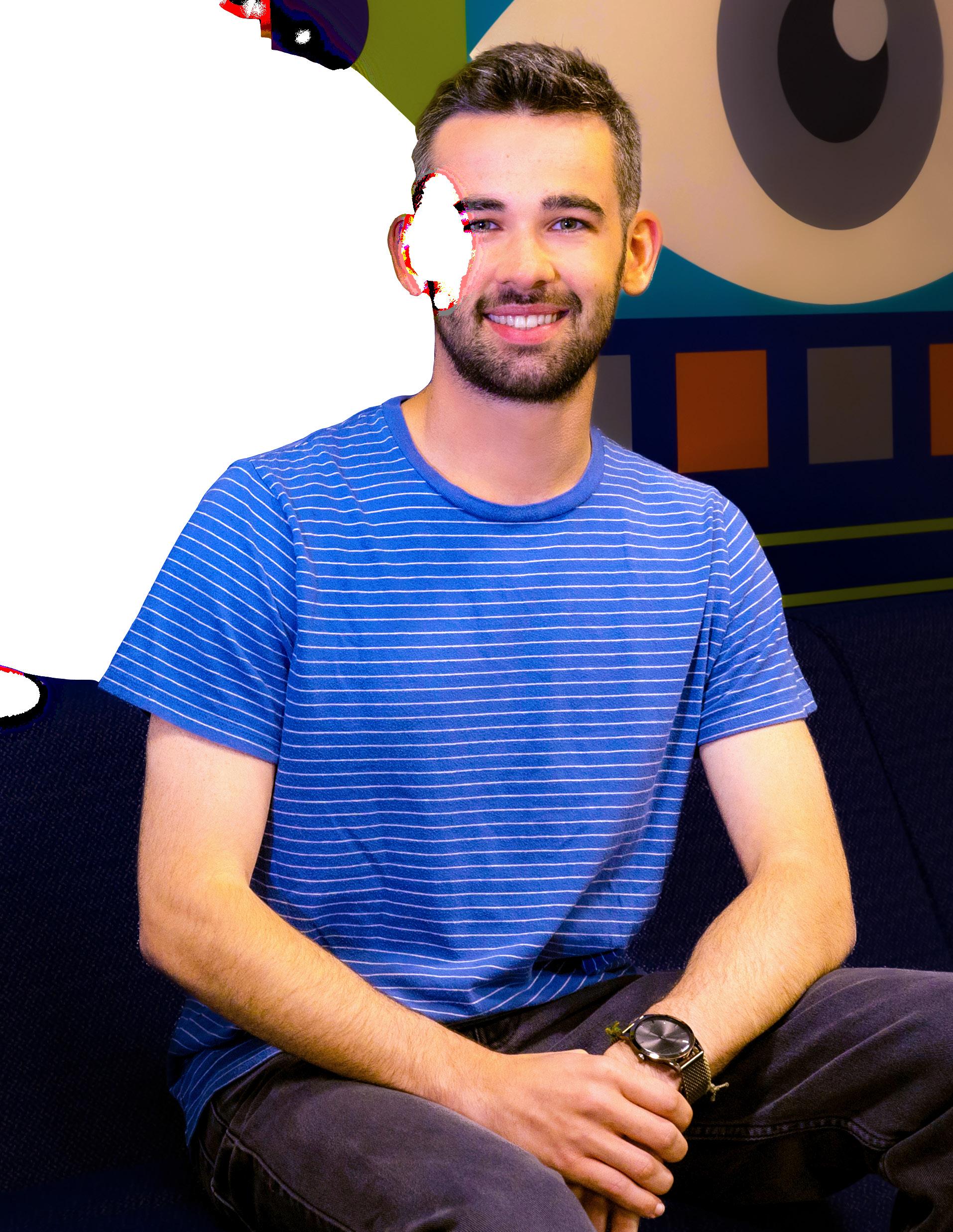 WALTER RYAN BULLWINKEL OWNER OF WALT B. FILMIN VIDEO PRODUCTION STUDIO
WALTER RYAN BULLWINKEL OWNER OF WALT B. FILMIN VIDEO PRODUCTION STUDIO
UVI is fueling the hopes and dreams of entrepreneurs from underserved communities who want to run street-level mom-andpop businesses, Bradshaw says. Program participants are mentored toward profitability through sessions with consultants and community leaders.
“We help entrepreneurs determine if and when is a good time to quit your day job because that may never be the case if the business is not stable and predictable,” he says.
“The rising tide doesn’t lift all boats. You have to pump some water into those communities. We’re connecting UTC to that aspect of the ecosystem of entrepreneurs.”
UVI is modeled after a program created by Michael H. Morris, an entrepreneurship and social innovation professor at the University of Notre Dame. Morris also is behind the national Veterans Entrepreneurship Program, which provides free training, mentoring and management expertise for small businesses founded by military veterans.
During the spring 2023 semester, seven UTC student consultants who trained for UVI—including Ben Milstone—guided the entrepreneurs in specific areas such as web design, cash flow and marketing.
Milstone, a sophomore business major, says UVI has been “such an eye-opening experience. Not only for the companies involved in the program but also for student consultants like me.”
The group of UTC student consultants also included Dekayla N. Brewer, an entrepreneurship major and small business owner; Walter Ryan Bullwinkel, an MBA student who owns his own videography company; Carmin Chambers, an accounting major with a strong interest in entrepreneurship; Kayla Evans, a marketing major; and Isaac Cade Hendren, an accounting major.
The final UVI milestone, Bradshaw explains, is to have all the businesses “in a position where they can move into the managed growth phase if they choose.”
“We basically take the entire process from idea to sustainable business,” Morris says. “The challenge when you’re low income is much more complicated than just being low income. If you’re from poverty, you frequently face literacy gaps; you have trouble focusing on business because you have more nonbusiness factors, such as crime and [lack of affordable] housing. It’s a complex mosaic” that includes the “inability to focus and no safety net.”
The UVI program is made possible by the Jack and Charlotte Frost Family Foundation, which covers student pay and other expenses. Other program collaborators include Tennessee Valley Federal Credit Union through its Idea Leap Grant competitions and LAUNCH Chattanooga, whose initiatives promote entrepreneurship, technology advancement, capital formation and workforce development. •
utc.edu/uviphotos
Since 2021, Bradshaw has been building the foundation of UVI, an entrepreneurship program designed to reduce poverty and wealth inequality among Chattanooga’s underserved communities.

The band has been invited to perform in the annual New Year’s Day Parade in London, England. In a celebratory event on March 22, parade founder and chairman Bob Bone and other representatives from the parade’s home office—including Senior Patron Duncan Sandys, former Lord Mayor of the City of Westminster and the great-grandson of Sir Winston Churchill— announced the invitation in person, on stage at the Roland Hayes Concert Hall in the UTC Fine Arts Center.
The band’s drum major, Justin Haynes, was there. “I was at a loss for words,” he says.
Officials say that the parade features 8,500 to 10,000 participants each year, and its broadcast reaches about 340 million homes in 26 countries. The 2022 parade passed in front of about 670,000 people in the streets of London.
UTC Director of Bands Randall Coleman actually got word of the invitation a few weeks prior to the March announcement and told band members, including Haynes.
“I was looking around at everybody and making sure I wasn’t the only one that heard what he just said,” recalls Haynes, a freshman economics major and graduate of Heritage High School in Ringgold, Georgia. In addition to leading the marching band on the field,
Haynes plays multiple instruments— including baritone clarinet and tenor saxophone—in the UTC Wind Ensemble and Jazz Band.
Reaction from members of the Marching Mocs to news of the London parade invitation is “one of those moments that I’ll always remember,” Coleman says. “They were so excited. They were so energetic. There was this genuine excitement and shock, and it was something really special.
“We feel that our band is one of the bestkept secrets in higher education, especially in our region, and to have this chance to perform on an international stage and put the word out about UTC across the world is a great opportunity for us.
“The first band at the University of Chattanooga was in 1923, so receiving this invitation that ties into our 100th year is very cool,” he adds.
While in London, Marching Mocs band members will participate in educational experiences including visits to the city’s West End, the Tower of London, Windsor Castle and a boat trip on the Thames River.
Haynes says he wants to sample some British food. “That’s one of my biggest interests,” he says. “One of my favorite things is checking out the different things that people eat.”
Coleman says some UTC band alumni will join the trip.
Other travelers going along for the ride include College of Arts and Sciences Dean Pam Riggs-Gelasco, a former clarinetist and marching band member at Rochester Adams High School and Albion College, both in Michigan.
“I’m a fellow band member, and I remember our tour. We went to the greater Detroit area,” she says with a laugh of the big trip her marching band took.

“I’m really super-excited for you, and I’m really excited because I’m going to tag along, too.” •
utc.edu/mocsmarch
utc.edu/londonmocsvid
PHOTO BY ANGELA FOSTER“We feel that our band is one of the best-kept secrets in higher education, especially in our region, and to have this chance to perform on an international stage and put the word out about UTC across the world is a great opportunity for us.”

Those words of wisdom imparted to Dr. Donald Reising during his days as an active-duty military member resonate today in his work with students.
Reising, now a UC Foundation Associate Professor of Electrical Engineering at the University of Tennessee at Chattanooga, served in the U.S. Army from 1995-1999 and the Ohio Army National Guard from 1999-2005—rising to the level of sergeant first class.

During Operation Iraqi Freedom, he was a member of the Headquarters and Headquarters Company of the 371st Corps Support Group. As the operations battle captain, he received more than a dozen awards and decorations, including the U.S. Army Meritorious Unit Citation—an award for exceptional service.
After obtaining a bachelor’s degree from the University of Cincinnati in 2006, he received a master’s (2009) and Ph.D. (2012) in electrical engineering from the U.S. Air Force Institute of Technology at Wright-Patterson Air Force Base in Ohio.
In 2014, Reising came to UTC, filling a need for a faculty member interested in both teaching and research.
“I wanted the challenge of building something that didn’t exist before,” says Reising, whose research interests include digital communications and signal processing; Specific Emitter Identification (SEI) and Radio Frequency (RF) fingerprinting; next-generation communications systems; automation of smart grid electrical disturbance categorization, identification and learning; and the use of SEI, machine learning and signal processing in radiation effects characterization.
Dr. Joanne Romagni, vice chancellor for research and dean of the Graduate School,
utc.edu/reisingsays Reising has been a phenomenal research asset since arriving on campus.
“Don Reising is the first of our faculty who have been invited to submit a proposal for a Department of Energy center grant, which is a big deal; these normally go to the big research universities,” she says.
Dr. Abdelrahman Karrar, head of the Department of Electrical Engineering, cites relationships Reising has forged with—among others—the National Science Foundation, the Department of Defense, the Department of Energy, the U.S. Navy, the Air Force, TVA and EPB.
“He is very successful in building bridges and knowing the right people,” Karrar says, “and that has resulted in phenomenal success in his funding.”
Reising’s research success mirrors his success in the classroom. He shares the story of his promotion to sergeant as a motivating factor in how he works with students.
During the pinning ceremony, Reising recalls, “Sgt. (Eddie) Greene said, ‘You’re a sergeant now; never forget where you came from. Never forget what it was like to be a private. Never forget what it was like to be the lowest guy on the totem pole.’
“When I stand in that classroom interacting with my students, that inner Eddie Greene comes out. I always try to remember what it was like to be a student and how I wanted my professors to teach or treat me and interact with me. I always try to listen to them, take their input and feedback, and use that as a guide toward mutual respect.”
Hopefully, he says, that respect will be reciprocated.
“I consider it a privilege to be a teacher; it’s not something I think I’m entitled to,” he continues. “Just like I never felt that I was entitled to be a leader. I was privileged to be a leader.” •
MORGAN LAMBERT, A GRADUATE STUDENT PURSING A MASTER’S DEGREE IN ATHLETIC TRAINING IN THE COLLEGE OF HEALTH, EDUCATION AND PROFESSIONAL STUDIES, DEMONSTRATING THE VR EQUIPMENT PICTURED OPPOSITE
 BY CHUCK WASSERSTROM
BY CHUCK WASSERSTROM
Some injuries are unavoidable thanks to the circumstances. Think of a football quarterback taking a hit from the blind side: He never saw it coming.
Collision sports constantly have athletes making contact with one another, frequently at high rates of speed.
Yet many injuries are preventable, says Dr. Gary Wilkerson, and it all starts at the top.
Wilkerson, a University of Tennessee at Chattanooga professor in graduate-level athletic training and a researcher in the field for more than 30 years, says he started trying to understand the connection between the brain and injuries 12 to 15 years ago.
“We began to see more knee and ankle injuries occurring after concussions compared to people who’d never had one,” he says, “and then the question becomes, ‘Why is having a concussion causing more knee and ankle injuries?’ That’s where we began to try to understand it.”
It’s all about reaction time.
“Reaction time is telling us how efficiently messages are being conveyed from one part of the brain to the other,” says Wilkerson, who has taught at UTC since 1999 and has received the designation of National Athletic Trainers’ Association Fellow.
A collaboration that Wilkerson has been a research partner in for the last two years is going next-level to improve reaction times.
Wilkerson and the Boston-based REACT Neuro group, who he refers to as heavy hitters in the world of neurology, are using virtual reality technology to test response efficiency.
“Their work was pretty much being done with senior adults and trying to detect early-onset cognitive decline,” he explains. “They realized that there are lots of parallels between the effects of concussions and repetitive head impacts in young adults and what we’re seeing in terms of degenerative changes in older adults.
“They talked to me about, ‘How can we take what we’re already doing and adapt that to get the most precise information that we can from young athletes?’”
The VR technology combines a physically exerting whole-body movement response with cognitive decision-making.

As Wilkerson describes, foveal vision is in the central part of your eyes where you have a high degree of acuity in picking up details, while peripheral vision is a bit blurrier.

“If we can improve the balance between the central vision and the peripheral vision, the range of that vision will get wider,” he says, “and the wider that peripheral vision, the quicker you’re going to pick up something coming from the periphery.”
For athletes, the faster the reaction time, the better the chance to protect themselves.
“From my perspective, this research is foundational. It’s critical,” Wilkerson says. “You can have continuing injury problems that aren’t getting resolved because you haven’t gotten to the core driver of the ability to effectively protect the joint, and that’s definitely in the brain. We have to understand it and know what to do about it.
“We don’t have all the answers about how to manage these things yet, but you can’t treat anything that you don’t first detect.” •

It’s an affordable path to career advancement and opportunities to work on solutions to society’s most pressing challenges.
Recent college graduates, mid-career professionals and students pursuing professional research and/or academia all can be equally suited to begin a master’s degree program at UTC. The University is also among the region’s and the state’s most affordable graduate school options with institutional scholarships and financial aid assistance available to help reduce costs for students.
Every graduate program is structured differently whether in-person, online or a hybrid combination of both virtual and traditional classes.
This helps meet the scheduling needs of a variety of full-time and part-time graduate students without compromising the academic integrity of each of UTC’s 55 graduate and 17 doctoral degree programs.
For example, computer science is more suitable for online course delivery than nursing, which requires in-person clinical work with patients.
Students who are 100% remote and/or live outside of the Chattanooga region are invited to campus anytime for in-person advising, meetings with professors and staff and use of campus resources and labs.
Online-only graduate students also can utilize the vast digital resources available at the UTC Library, including free access to subscriptiononly online databases and information portals. Additionally, books and other print-only materials can be mailed to UTC students without easy access to campus.
Graduate student organizations and professional societies at UTC offer more avenues for students pursuing advanced degrees to connect with others in their field for professional and personal networking.
Each of UTC’s four academic colleges manages all aspects of their respective programs, including degree requirements, research and enrollment. However, UTC Graduate School program liaisons help prospective and current students navigate their academic journeys. Led by Dr. Joanne Romagni, UTC vice chancellor for research and dean of the Graduate School, and Dr. Ethan Carver, associate dean and professor of biology, the Graduate School staff are available in-person and online to answer questions and provide resources and information.
The UTC Center for Global Education also provides international graduate students with special immigration assistance and other helpful services.
UTC professors bring years of experience to the Graduate School. Faculty support students in the pursuit of the latest knowledge in their fields and in conducting scholarly research toward careers of inquiry and, in many cases, achieving important credentials to advance their careers and earning potential.
Positions that require master’s degrees typically come with higher pay and responsibility, and those who have such
advanced degrees often enjoy greater workplace marketability and choice of industry. And many UTC graduate students have jobs waiting for them upon graduation or even before, in some cases, thanks in part to professional connections made through their professors and/or department staff.
UTC faculty are outstanding teachers and scholars, conducting research around the world and presenting results to international audiences with their graduate students.
Romagni has led UTC’s push to establish and grow a robust culture of research and community engagement since 2015 when she was appointed as the University’s first vice chancellor for research.
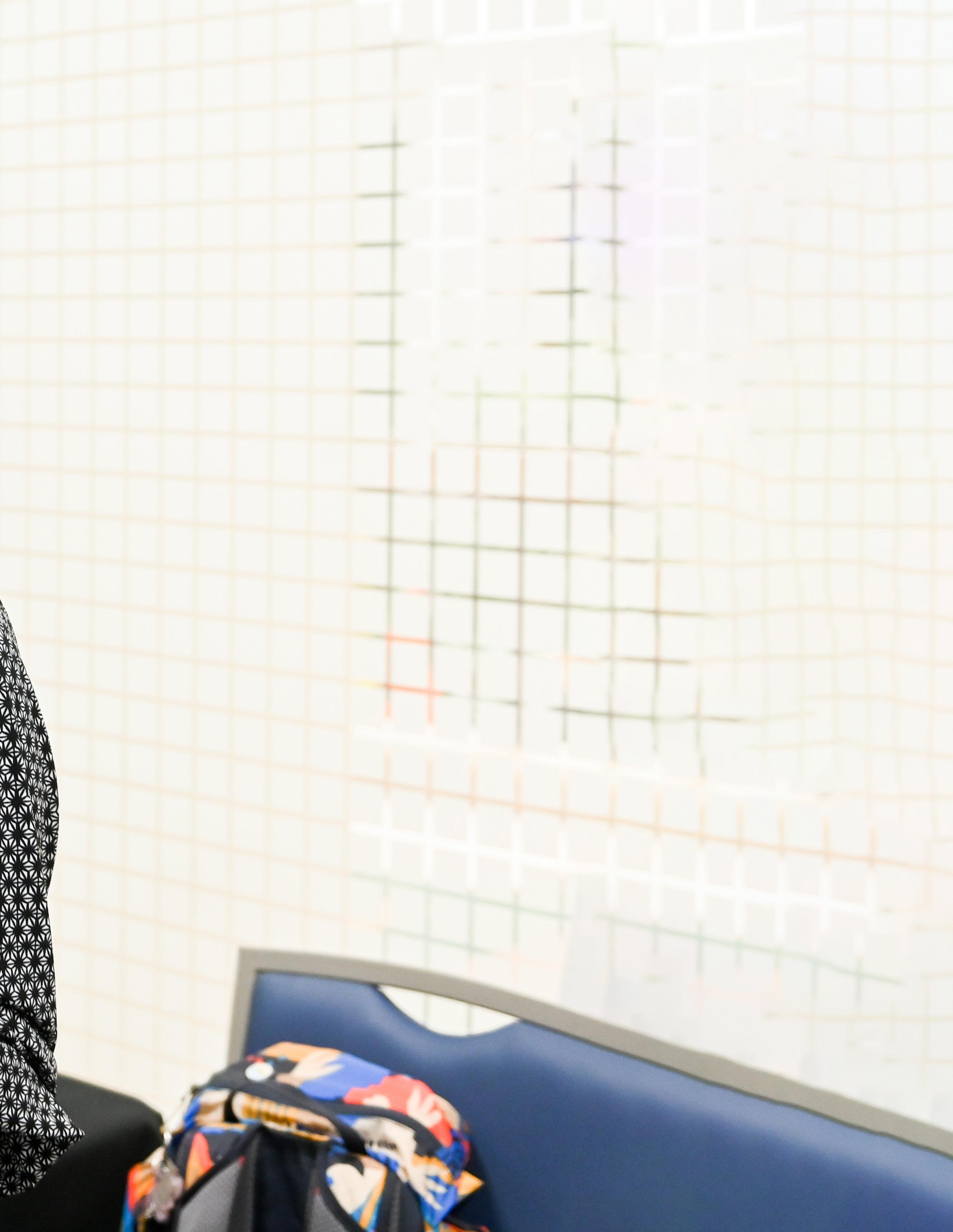
Focused on increasing funding and grants for research (including equipment and staff) and connecting professors and students with research partners from the public, private and nonprofit sectors, Romagni also is re-shaping the University’s approach to academic investigations with greater emphasis on commercialization efforts.
That means that UTC graduate students increasingly are conducting research aimed at advancing knowledge to make the world a better place.
For students, just thinking about how to take an idea from the lab or the field and push it into the marketplace helps them better understand the value of their research in everyday life and explain it to the public, Romagni says.
“We’re expanding research at an unprecedented level and heading in the right direction,” she says.
Among the many prestigious organizations, agencies and businesses that have partnered with UTC for research are:
National Science Foundation
National Institutes of Health
U.S. Department of Defense
U.S. Department of Energy
U.S. Department of Transportation
Oak Ridge National Laboratory
NASA
City of Chattanooga and State of Tennessee
EPB of Chattanooga, local electric power distribution and telecommunications company
If you’re interested in becoming a leader in your field, expanding your earning potential and doing work that matters to you and to the world, apply to the UTC Graduate School today.
LEARN MOREALUMNI SPOTLIGHT
With Little Debbie oatmeal creme pies selling like hot cakes , McKee Foods Corp. is looking for better traffic flow into and out of its Collegedale headquarters, such as a roadwidening project contracted by the Tennessee Department of Transportation.
The $100-million Apison Road project will be completed within about two years, thanks to a cadre of University of Tennessee at Chattanooga graduates working and managing the project as employees of Charleston, Tennessee-based Wright Brothers Construction Co.—a 700-worker operation throughout the Southeast with annual revenues of about a quarter billion dollars.
“Each year, Wright Brothers places interns from UTC’s civil engineering and construction management programs on job sites and in construction offices across the Southeast,” says Anthony P. Boals, a Wright Brothers vice president with a master’s degree from UTC.

“Many interns have remained and taken full-time positions with the company. Wright Brothers has certainly been the beneficiary of the high-quality engineering and management students UTC is producing for the construction industry.”
Many universities, Boals says, are answering the industry’s call by creating construction management programs. The business always needs top-flight engineers and astute managers of employees and finances.
“These programs are light on technical (expertise) and heavy on business and management,” he says. “When UTC started its construction management program, we were instrumental in meeting with them and helping them design their curriculum. Our ties go back several years with UTC.”
Another tentacle connecting Tennessee college students to construction jobs are scholarships awarded by the state Road Builders Association, of which Wright Brothers is a member.
“It works out good for both students and companies,” Boals says. “It’s kind of a no-obligation dating service, as I like to tell the students. We get to find out if you like us and we like you.”
He says Wright Brothers places up to 18 college students as interns each year, with many of them studying at UTC.
Among those students is 2009 alumnus Tanner Dodd, who majored in anthropology and archaeology with a minor in history. Dodd now manages the Apison Pike (State Route 317)
project, which runs about six miles from Collegedale to East Brainerd Road.
Another Wright Brothers worker on the Apison Pike project is Jared Spradlin, a December 2022 UTC graduate with a degree in engineering, technology and construction management. He began a Wright Brothers internship in March 2021 and went full-time three months later.
Brian Charlesworth, a UTC graduate in the class of 2007, is Wright’s Tennessee project manager and overseer of the Apison Pike project.
Not only do UTC engineering and construction management graduates call Wright their corporate home, but the company also employs other University graduates, including Wright Brothers Director of Marketing Joelle M. Cavitt.
Boals, who oversees Wright’s internship program, says many UTC students earn scholarships and secure full-time employment with Wright before graduation.
“It’s really a benefit when it works out that way,” he says. “We have a line on a good employee, and the student already has employment before they graduate. We’re definitely reaping the benefits of UTC.” •
Molly Cooper ’98 started a new role as the director of alumni affairs at the University of Tennessee at Chattanooga and the UC Foundation.
Anna Massey ’99 started a new role as senior environment scientist at GEOServices.
Allie Schrenker ’19 started a new role as rural outreach and program manager at The Company Lab (CO.LAB) in Chattanooga.
Jimmy Holloway ’02 started a new role as fleet manager at F2F Transport.
Randy Johnson ’96 started a new role as partner at R&R Energy Development Company LLC.
Megan McClure ’20 started a new role as a social media specialist at Surroundings Group.
Olivia Cawood ’18 started a new role as executive director at Chieftains Museum.
Candace Johnson ’22 started a new role as member relationship specialist at First South Financial Credit Union.
Varsha Kommireddi ’22 started a new role as a Tennessee Governor’s Management Fellow.
Emily Wilson ’21 started a new role as assistant marketing account manager at BRAINBOX Immersive Marketing.
Gus Gaston ’22 was selected as one of 75 finalists for the 2023–2024 CongressBundestag Youth Exchange for Young Professionals fellowship and will move to Germany for the program.
Brent Goldberg ’01, ’03 started a new role as the vice chancellor of finance and administration at UTC.
Bailey Callison ’20 was appointed to the Bethel Bible Village board of directors.
Michael Ferguson ’93 recently published his first speculative fiction novel, “The Genesis 6 Project.”
Molly Majors ’04 was named managing broker at Crye-Leike Realtors, Ooltewah office.
Dagan Beckett ’12 won an Emmy in the topical documentary category for his film, “Songbirds: A Documentary.”

Kennedy Anderson ’22 started a new role as a behavioral youth counselor at Youth Villages.
Janayah Crawford ’22 started a new role as a HR generalist at Support Solutions.
Grant Williamson ’21 started a new role as a Think on Point Educator at On Point in January 2023.
Silvey McGregor ’22 started a new role as a graphic designer in residential marketing for the brand Anderson Tuftex of Shaw Industries.
Laura Cagle ’11, ’13 got engaged to Phil Snyder and will marry in 2024.
Zack Percell ’21 and Kara (Kirk) Percell ’22 were married in December 2022 in Loudon, Tennessee.
Job updates, special recognitions, marriages, baby Mocs, travel and more—let us know what wonderful things you’ve done after graduation, and find out the latest news from your other alumni, too. Your note may feature in the next edition of the UTC magazine!
ALUMNI.UTC.EDU/MOCNOTES
Jade Stone ’04 started a new role as VP of real estate valuation at PNC Realty Investors, Inc.
Warren Ladbrook ’93 was appointed as the new director of commercial development for WithersRavenel.
Kino Becton ’03, ’08 was promoted to senior vice president of government relations at Passport in Charlotte, North Carolina.
Destiny Richardson ’02 started a new position as the assistant sirector of business affairs in Enrollment Management and Student Affairs at UTC.
Carol Thompson ’89 started a new role as the director of provider relations at Tennova Healthcare-Cleveland.
Michael Sutton ’93, ‘97 started a new role as president of CHI Memorial Medical Group and Mountain Management.
Kelsi Hatcher ’22 started a new role as a Youth Services Officer at Washington County Juvenile Services.
Caroline Waldron ’19 and Wesley Bolton ’19 got engaged and will marry in 2023.
Evan Potts ’21 and Macy (Harrison) Potts ’21 were married in December 2022 in Lebanon, Tennessee.
Kyle Miskelley ’20 and Hannah (Kollmansperger) Miskelley ’20 were married in July 2022 in Chattanooga.
Alice Whitmire ’21 and Jackson Ducote ’22 were married in July 2022 in Chattanooga.
Alyse (Rietveld) Frazier ’21 married Jaden Frazier in Chattanooga in July 2022.
Madison Ponkauskas ’22 and Andrew Cox were engaged in June 2020 and will marry in 2023.
Kyle Gentner ’20 and Lauren Gentner ’20 welcomed a new baby, Ellie, in November 2022.
Nick Carr ’21 and Ashley (Piotto) Carr ’21 welcomed a new baby, Liam, in January 2023.
The University of Chattanooga Foundation Inc. manages the private endowment of the University of Tennessee at Chattanooga. The UC Foundation was created in 1969 when the private University of Chattanooga merged with Chattanooga City College and joined the University of Tennessee system of statewide campuses.
The UC Foundation’s mission is to provide resources that support distinctive programs and promote bold initiatives that enrich the educational experience at UTC.
A CPA and proud alumnus, Larvizo Wright graduated with a degree in accounting and credits his time at UTC for challenging him to think critically and to conduct business in a way that connects him to the community around him.
“When I entered the workforce as a staff accountant, I not only had tactical skills to deploy right away but also lead with empathy.”
At age 14, Wright knew he wanted to pursue a degree in accounting and credits scholarships and relationships along the way for his success. In September 2022, he was promoted to assistant vice
president, corporate audit, at Unum, a Fortune 200 company.
“I’m proud of the promotion that has been the result of hard work, support from others and ties all the way back to my days as an undergraduate student at UTC.”
While maintaining relationships with fellow classmates and professors since graduating, Wright also serves on the UTC alumni board as the chair of the Diversity and Engagement Committee and as a graduate advisor to the Xi Upsilon Chapter of Phi Beta Sigma Fraternity, Inc.
“Being involved as an alumnus keeps me empowered to get on campus and pour into the next generation of leaders.” •
A May 2023 graduate, Kalyn Choate is one of the newest alumni at UTC and says she is excited to begin this next stage of life while also looking back at her time at UTC fondly. As a student, Choate was involved in Alpha Delta Pi, where she eventually served as president.
“From supporting everyone’s philanthropy weeks to screaming at the top of our lungs on bid day, UTC’s Greek life is like no other!”
Through her involvement, she began an internship with Ronald McDonald House Charities of Greater Chattanooga (RMHC), her sorority’s main philanthropic organization and created a student club at UTC to connect more students to RMHC.
“Holding different positions in Alpha Delta Pi shaped me into the worker, friend and team player I am today. If I have the mindset of needing to grow, my potential is limitless.”
Choate began her professional career at JoyBridge Kids working with special needs children primarily through Applied Behavioral Analysis therapy.
Recently, she got engaged to fellow UTC alumnus, Trey Campbell ’21 who will finish an MBA at UTC in December 2023.
“One of the biggest blessings about being at UTC with Trey is getting to create a community together. With Trey being in Sigma Chi and me in Alpha Delta Pi, we found our family at UTC.” •
The Graduates of the Last Decade program, or GOLD, is back in action this summer.
GOLD is the first stop on the alumni journey for the newest members of the UTC alumni family. Built on the pillars of social, career and service, GOLD is designed to create opportunities for participating alumni to foster lasting relationships with their alma mater and serve as a voice for recent UTC graduates.
While the program has been on a short hiatus in recent years, UTC Alumni Affairs has
collaborated with former GOLD council members, current GOLD alumni, recent graduates and students preparing to graduate to determine how the University could best support new alumni in the transition from student to professional and throughout their early careers.
Offering a variety of professional programs, social events and service opportunities was the resounding recommendations on what alumni needed from UTC. And that’s exactly what the GOLD program now offers. •

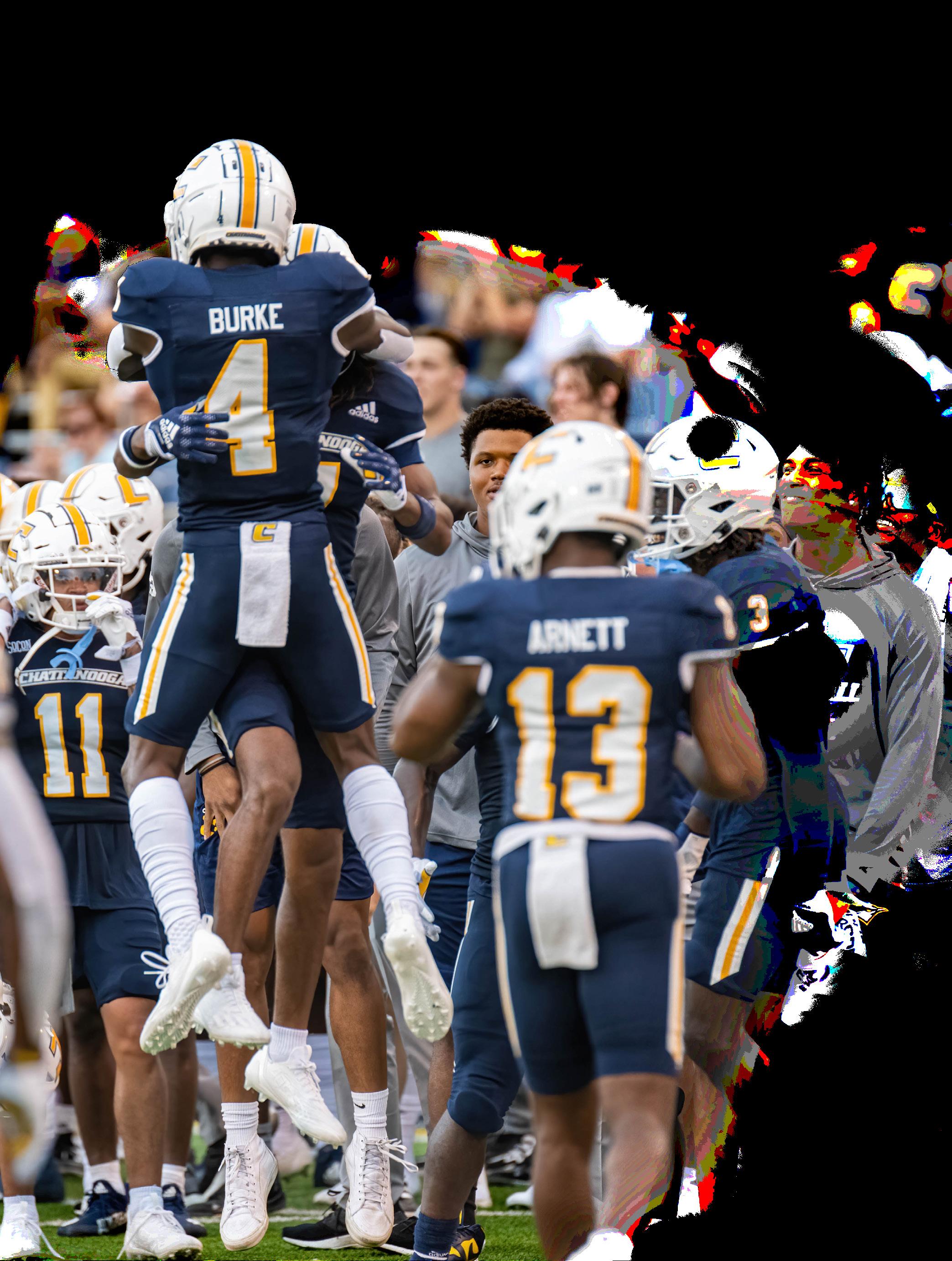
 PHOTO BY STEPHEN RUMBAUGH
PHOTO BY STEPHEN RUMBAUGH

